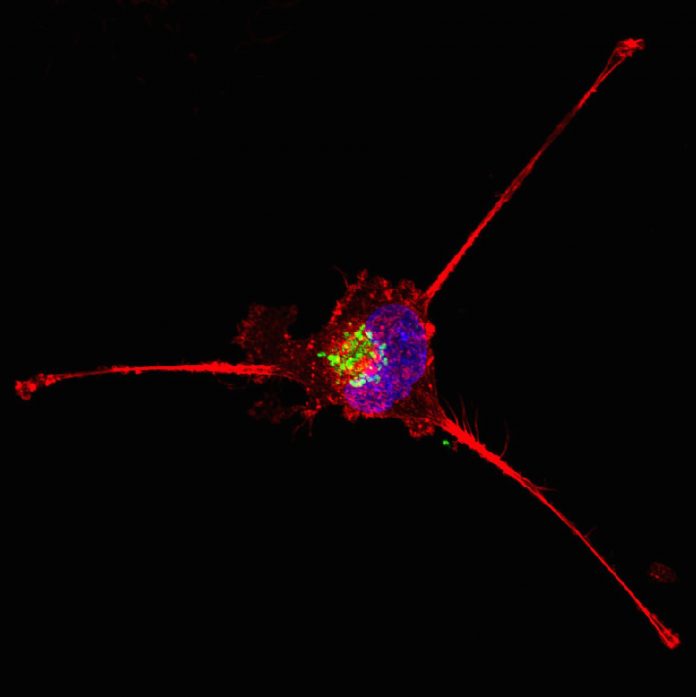Heart Toxicity from Common Cancer Treatment Linked to Hemopexin

Cardiac toxicity all through anthracycline-centered cancer remedy is linked to amounts of the protein hemopexin, in accordance to perform led by scientists at Beth Israel Deaconess Medical Middle (BIDMC). In two reports carried out in females going through treatment for breast cancer, blood hemopexin levels were being linked with cardiac toxicity. Comply with up scientific tests in mice disclosed the protein has heart-protecting qualities.
These findings, ended up published in Science Advances. They propose clinicians might a person day use a easy blood exam to detect possibility of coronary heart problems by measuring hemopexin amounts. There is excellent curiosity in locating biomarkers of toxicity in most cancers procedure. Scientists at Michigan Drugs lately claimed on new biomarkers for myocarditis connected to checkpoint inhibitor treatment.
“Given the expanding stress of each coronary heart failure and most cancers in the getting old populace, the growth of new biomarkers and heart-protective techniques is essential to reducing the impression of most cancers remedy-connected cardiac toxicity,” reported senior and corresponding writer Aarto Asnani, MD, a cardiologist and director of the Cardio-Oncology Method at BIDMC. “This research identifies the induction of circulating hemopexin as a heart-protective system suitable to individuals addressed with anthracyclines.”
Anthracyclines are a class of chemotherapies made use of in dealing with numerous forms of most cancers, such as leukemias, lymphomas, and breast most cancers. They include doxorubicin, commonly utilised in opposition to breast most cancers, and get rid of cancer cells by damaging their DNA. On the other hand, they also bring about harmful outcomes in the heart in about 10 {a0ae49ae04129c4068d784f4a35ae39a7b56de88307d03cceed9a41caec42547} of patients, which can sooner or later guide to coronary heart failure, significantly in older individuals.
Presently, there are no successful techniques to predict which people are at possibility for anthracycline-related cardiac toxicity.
Asnani and colleagues researched 30 gals diagnosed with breast most cancers and scheduled to undergo cure with anthracyclines. Questionnaires, blood samples and echocardiograms have been attained every single 3 months in the course of the research interval.
At a few months just after initiating cancer treatment method, the researchers observed an in general decline in coronary heart purpose across the cohort of participants, with six sufferers producing symptoms of coronary heart failure inside a calendar year. All through this time, the researchers monitored 1,317 proteins circulating in participants’ blood plasma. The crew observed changes in a whole of 39 proteins, with improves in hemopexin remaining most strongly linked with early heart toxicity. A second analyze with a cohort of 31 ladies yielded just about equivalent final results.
“Based on these human results, we used a mouse design that closely mirrored the heart concerns observed in patients treated with doxorubicin,” reported 1st author Jing Liu, MD, PhD, a submit-doctoral researcher in the Division of Cardiovascular Drugs at BIDMC. “As we noticed in sufferers, plasma hemopexin was elevated in mice within just 24 hours after completion of chemotherapy and was strongly connected with subsequent cardiac functionality.”
Possessing proven a very clear link between anthracycline-induced cardiac toxicity and greater hemopexin levels, the researchers sought to determine hemopexin’s functional position.
When the scientists dealt with wild variety lab mice with doxorubicin, administering hemopexin prevented the development of cardiac dysfunction. On the other hand, when the scientists executed a related experiment in genetically altered mice that absence the obviously occurring hemopexin protein, people mice demonstrated greater doxorubicin cardiac toxicity in comparison to wild type mice, suggesting the physique may well create hemopexin as a protective response to anthracycline-induced cardiac hurt.
“These findings serve as the basis for future investigations to establish hemopexin as both equally a biomarker and a protecting remedy for clients at threat of chemotherapy-relevant coronary heart toxicity,” reported Asnani. “We are now operating to look into whether our results use to a greater team of people of distinctive genders and other varieties of most cancers, such as lymphoma.”
